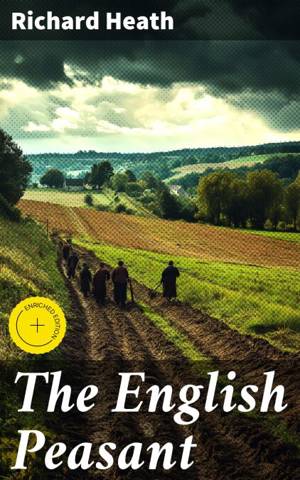
- Retrait en 2 heures
- Assortiment impressionnant
- Paiement sécurisé
- Toujours un magasin près de chez vous
- Retrait gratuit dans votre magasin Club
- 7.000.0000 titres dans notre catalogue
- Payer en toute sécurité
- Toujours un magasin près de chez vous
The English Peasant EBOOK
Enriched edition. Exploring the struggles and triumphs of medieval England's peasantry through vivid historical narratives
Richard Heath
Ebook | Anglais
1,99 €
+ 1 points
Format
Description
In "The English Peasant," Richard Heath delves into the socio-economic plight of rural English laborers from the Middle Ages to modern times, examining the entwined relationship between agricultural practices and class struggle. Heath employs a vibrant narrative style, incorporating historical anecdotes and sociological analysis to illuminate the everyday lives of these often-overlooked figures. By situating the peasant's experience within broader political and economic frameworks, he constructs a compelling argument about the systemic exploitation and resilience of the working class, thus situating his work within the canon of labor history literature, which critiques socio-economic inequality. Richard Heath is a distinguished scholar known for his extensive research in agrarian studies and socio-economic history. His early career was shaped by his upbringing in a farming community, providing him with firsthand insight into rural life. This background, combined with his academic pursuits in sociology and history, led him to explore the complexities faced by English peasants over time. His interdisciplinary approach combines elements of Ibsen-inspired realism and Marxist theory, reflecting his commitment to social justice and historical accuracy. Heath's "The English Peasant" is essential reading for anyone interested in the intricate dynamics of class, labor, and identity in English history. With its rich narrative and thoughtful analysis, it not only serves as a vital academic resource but also as a poignant reminder of the human cost of socio-political structures. This book is a must-read for historians, sociologists, and anyone who seeks to understand the roots and realities of rural life.
In this enriched edition, we have carefully created added value for your reading experience:
- Hand‐picked Memorable Quotes shine a spotlight on moments of literary brilliance.
- Interactive footnotes clarify unusual references, historical allusions, and archaic phrases for an effortless, more informed read.
In this enriched edition, we have carefully created added value for your reading experience:
- Hand‐picked Memorable Quotes shine a spotlight on moments of literary brilliance.
- Interactive footnotes clarify unusual references, historical allusions, and archaic phrases for an effortless, more informed read.
Spécifications
Parties prenantes
- Auteur(s) :
- Editeur:
Contenu
- Nombre de pages :
- 348
- Langue:
- Anglais
Caractéristiques
- EAN:
- 4064066064259
- Date de parution :
- 07-12-20
- Format:
- Ebook
- Protection digitale:
- Digital watermarking
- Format numérique:
- ePub

Seulement chez Librairie Club
+ 1 points sur votre carte client de Librairie Club
Les avis
Nous publions uniquement les avis qui respectent les conditions requises. Consultez nos conditions pour les avis.





